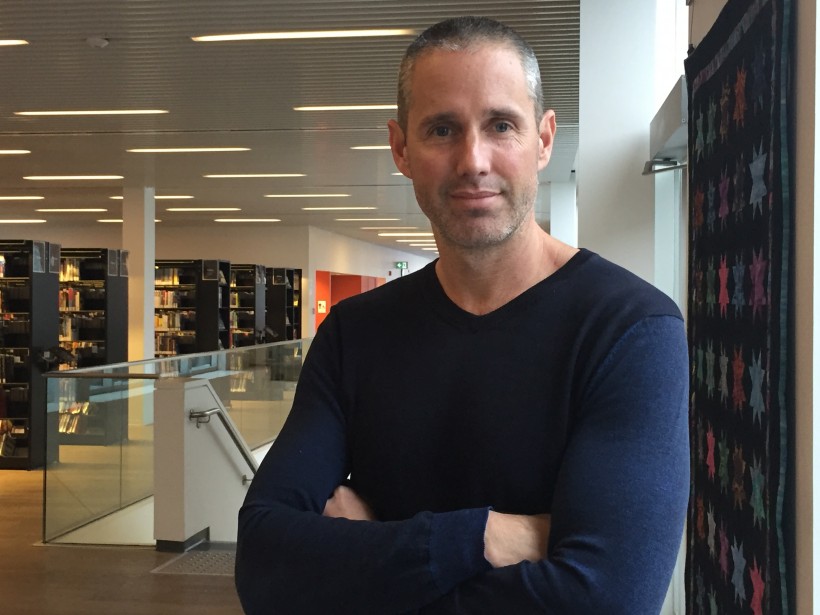Ocean technology has emerged in recent years as a particular strength of the Atlantic Canadian startup community, with ecosystem intelligence provider Startup Genome ranking the region as the eighth strongest worldwide. St. John's-based Kraken Robotics’ announcement that its most recent quarter was its best ever highlights the strength of the sector even amid turbulent macroeconomic conditions.
This innovative milieu has led to the creation of some promising new oceans startups in recent years, so we thought we'd showcase four young bluetech companies we’ll be watching closely in 2024. These are all early-stage companies, so they're being listed here more for the buzz they're creating than the traction they've gained.
Let's take a look at them:
Clean Valley CIC
Based in Halifax with pilot projects in Portugal and New Brunswick, Clean Valley CIC is developing technology for growing algae in wastewater from land-based aquaculture pens.
Clean Valley is far from the first company to explore using aquaculture effluent to farm algae. The idea dates back at least to the period of high oil prices between 2008 and 2010, when researchers briefly hoped to use the microorganism to produce ethanol for biofuel. What makes Clean it new is founder Nicholas LaValle's plans to repurpose the algae produced as oyster food.
The company is trialing its technology with Portuguese aquaculture operator SEAentia at a facility where it farms a ray-finned fish called meagre. The algae cannot be fed to the meagre because finned fish generally need animal protein, but the oyster farming market alone offers a use for the algae that is likely to prove more lucrative than other possible applications. Several of Clean Valley’s peer companies, for example, provide algae to the pharmaceutical industry, but the purity standards required are extraordinarily high, unlike for oyster feed.
LaValle has said Clean Valley is in the process of raising a pre-seed funding round, and the company has recently joined Energia Ventures, the Fredericton-based accelerator affiliated with University of New Brunswick, as well as Invest Nova Scotia’s GeenShoots accelerator for agtech, biotech and cleantech startups.
The Ocean Supercluster also announced in September that Clean Valley and biomonitoring specialists IntegraSEE will jointly lead a more-than-$1 million research consortium, including $415,000 from the Supercluster, in developing technology to use mussel behaviour to detect waterborne illnesses.
Net-Zero Edge
Halifax’s Net-Zero Edge was founded last year by blue economy veteran Kyle Burton and plans to locate computer data centres on the seafloor, with the aim of delivering more efficient cooling and saving on real estate and infrastructure costs.
Burton, who has previously worked at former venture capital Crown corporation Innovacorp, was inspired to start the conpany partly by Microsoft’s Project Natick, a multi-year research program aimed at gauging the feasibility of subsea data centres powered by renewable energy. Engineers sank their server equipment in 117 feet of water off Scotland’s Northern Isles and left it in operation there for two years.
Project Natick ended in 2020 and concluded that underwater data storage was a viable technology likely to be “reliable, practical and use energy sustainably.”
The model offers significant benefits compared to land-based server farms. Burton has said previously that the land for terrestrial data centres can sometimes cost over $1 million an acre, while land on the seafloor off the Atlantic coast of the United States can sell for as little as US$4 an acre. And the seawater can aid in cooling, reducing the ever-present concerns about overheating that plague conventional data centres.
In May, NZE joined the 10-week Bluetech Boost accelerator from Gulf of Maine Ventures, the investment arm of the Gulf of Maine Research Institute oceantech hub in Portland, Maine.
Smallfood
Founded by serial entrepreneur Marc St-Onge in 2018, Smallfood is developing food ingredients derived from fermented algae, as well as feed for fish farms.
Nourishing farmed fish has been a longstanding pain point for the seafood industry, with conventional solutions tending to consume more calories than they ultimately produce in edible fish. Feeds that use low-quality ingredients like soy meal and feathers have also proliferated in recent years, whereas Smallfood’s algae feed is significantly more nutrient-dense than conventional products.
Recently, a collaboration between Halifax-based Smallfood and Toronto’s Terra Bio was one of just six competitors out of a field of hundreds to be selected as finalists for the international XPRIZE Feed the Next Billion startup competition, placing it in the running for a US$15 million prize pool.
Terra Bio upcycles spent grains from breweries into raw food ingredients like sugars and protein powders. The two businesses, which together form Team ProFillet, are creating an imitation fish product with a realistic texture and higher nutritional density than existing offerings thanks to Smallfood’s algae derivative.
Veer Group
Veer Group is the brainchild of Lunenburg, N.S.-based shipping entrepreneur Danielle Southcott, who plans to build hydrogen- and wind-powered container ships.
Southcott, who hails from near Kingston, Ontario, previously founded Costa Rican shipping company SAILCARGO, which builds and operates wooden sailing ships augmented with electric motors. A combination of sails and hydrogen is better suited to container ships like those Veer plans to build because hydrogen is more energy dense than batteries.
Veer’s planned ship design has already been approved by the American Bureau of Shipping, which provides certification services to the marine industry, and Soutchott plans for the business to operate its own ships under charter for other businesses, rather than selling them outright, in order to ensure consistency in how they are operated.
Veer, which has three employees, counting Southcott, is formery a Bahamian company. Southcott lived in the Caribbean nation until recently, and its government has been vocal about concerns related to climate change and rising sea levels.
Earlier this year, she said she was raising US$3 million to fund Veer’s operating expenses while it works on building its first vessel, which it plans to be 100 metres long, with the vessel itself being financed separately. Veer is also in tender talks with several Canadian shipyards to actually build the ship.










